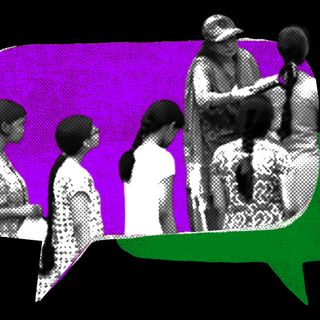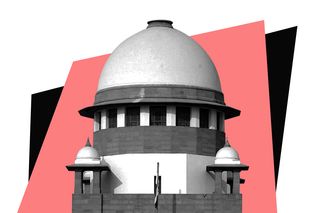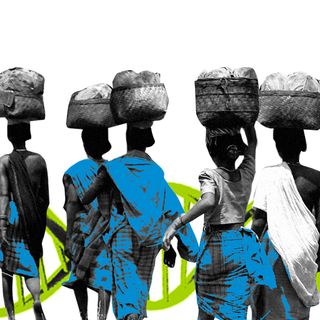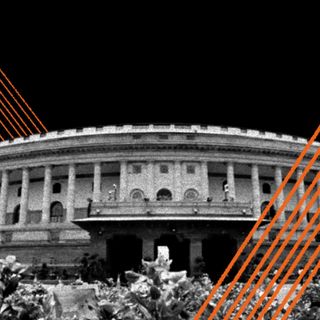
Can’t Deny Abortion to Unmarried Women, Rules Supreme Court
Women — married and unmarried — have the right to safe abortions as part of their personal liberty, the court said while overturning a previous ruling.

The Supreme Court on Thursday overturned a contentious legal order from earlier this week that restricted a single woman’s right to abortion. Women, irrespective of their marital status, have the right to safe abortion; any restrictions on accessing them violate their right to personal autonomy and freedom, said the apex court in an interim order.
“Petitioner should not be denied the benefits merely because she’s [an] unmarried woman,” the court observed. The bench, comprising Justices D.Y. Chandrachud, Surya Kant, and A.S. Bopanna, was ruling on the petition of a 25-year-old woman who was seeking to abort her 24-week-old fetus. The Delhi High Court in a July 15 order declined to permit the abortion, stating that since the pregnancy arose out of a consensual sexual relationship, the woman’s plea for abortion is not permissible under the current laws.
As per the Medical Termination of Pregnancy (MTP) Amendment Act, 2021, medical practitioners can terminate the pregnancy, as long as it does not exceed 20 weeks. In cases where the pregnancy exceeds 20 weeks and is before the 24-week mark, termination is possible only when validated by a medical body’s opinion. But in this case, the Delhi High Court cited both the progression of the pregnancy as well as the fact that it arose out of a live-in relationship as reasons why the abortion request wasn’t covered under the MTP Act. This is despite the petitioner noting she was “deserted by her partner” last month, “causing her immense mental agony, trauma, and physical suffering.” Forcing her to continue with the pregnancy would then pose danger “danger to the life or risk to physical or mental health of the woman,” something the MTP Act cites as its prerequisites for seeking an abortion.
Taking note of the petitioner’s plea, the Supreme Court bench noted that access to safe abortion is part of a woman’s personal liberty, irrespective of marital status. The bench argued there was the legislative intent to include unmarried women within the scope of the MTP Act Amendment, since the law uses the word “partner” instead of the term husband. “Parliament by amending the MTP Act through Act 8 of 2021 intended to include unmarried women and single women within the ambit of the Act. This is evident from the replacement of the word ‘husband’ with ‘partner’ in Explanation I of Section 3(2) of the Act.”
The Delhi HC, thus, took a “restrictive view” of the abortion law, and that any change in relationship status must lend itself to a “purporsive interpretation,” the court observed.
Related on The Swaddle:
“We are of the view that allowing the petitioner to suffer an unwanted pregnancy would be contrary to the intent of the law enacted by Parliament…the petitioner should not be denied the benefit on the ground that she is an unmarried woman. The distinction between a married and unmarried woman does not bear a nexus to the basic purpose and object which is sought to be achieved by Parliament,” the bench said, according to LiveLaw.
The legal decisions within the span of a week raise pertinent issues of women’s choice and agency, as well as reference the cultural anxieties around sexually active women outside of matrimonial relationships.
The court does reaffirm that a woman’s right to reproduce comes under her personal liberty as guaranteed by Article 21 of the Constitution; any attempt at creating distinctions between married and unmarried women will be counterproductive to the purpose of the MTP Act. Despite the legality, the abortion experiences of unmarried women in India remain fraught with stigma, fear of shame, and difficulties in access and affordability. According to one study, one in six women who faced challenges to abortion said that pregnancy had resulted from a nonconsensual sexual encounter. The recognition of unmarried women’s access to abortion, then, is a critical piece of the conversation around reproductive justice.
“Both these rights [of the reproductive choice of a woman and her bodily integrity and autonomy] embody the notion that a choice must inhere in a woman on whether or not to bear a child. In recognizing the right the legislature has not intended to make a distinction between a married and unmarried woman, in her ability to make a decision on whether or not to bear the child,” the court said.
But it is important to note the judgments come in the context of a global reckoning with access to reproductive justice. With the overturning of Roe vs. Wade in the U.S., a landmark legal position on abortion access, India’s personal stance on reproductive rights came to sharper focus. While India’s MTP Amendments are relatively better in comparison, they still suffer from the same issue of poor implementation and restricted access to abortion care — owing to physical, emotional, and ideological barriers. One concern is with respect to the gray area in the law. The bench rightly notes that the MTP Amendment is not restricted to conventional matrimonial relationships, but at the same time, the said Rule 3B “does not envisage a situation involving unmarried women, but recognizes other categories of women such as divorcees, widows, minors, disabled and mentally ill women and survivors of sexual assault or rape,” as the order noted. In other words, the access to reproductive rights for single women outside the institution of marriage is still ambiguous. This means that often the categories of “widowhood and divorce” are seen as exhaustive — when they don’t have to be.
Related on The Swaddle:
Another concern that the Supreme Court’s order does little to supersede is that of factoring in the medical practitioners’ opinion. In the current case, the court has asked a medical body to decide if the abortion poses a risk to the fetus, as necessitated under Section 3(2)(d) MTP Act (at least two registered medical practitioners are required to confirm that “the continuance of the pregnancy would involve a risk to the life of the pregnant woman or of grave injury to her physical or mental health”). So the current petitioner will, despite this judgement, will still be able to abort the pregnancy only after she gains approval from the AIIMS doctors.
In other words, the ruling recognizes the right to access the medical bureaucracy of abortion but still isn’t inherently rights-based in that it leaves it entirely to a person to decide. The pregnant person’s autonomy over the pregnancy is still wanting. This is not only violative of their personal agency but also unviable. “The requirement of having at least three specialist doctors will make constituting these boards unfeasible in many parts of the country, and practically impossible in others, due to the sweeping shortages of doctors across India,” as Dipika Jain and Kavya Kartik wrote in The Swaddle last year. “Pregnant persons will either have to travel longer distances to access a working board or be forced to approach the courts to seek approval for terminations.”
Interestingly, the opinion of medical boards as a deciding factor was introduced only in 2016; this was a landscape where the MTP wasn’t amended yet and the courts relied on the professional stance of doctors to allow or refuse abortion when pregnancy exceeded 20 weeks. And there have been instances of high courts countering the medical body’s opinion and allowing the petitioner to access abortion even if she made the decision after the 20-week-limit. In these cases, the grounds for abortion were again to protect the person’s mental health. But these are scattered cases where much is discretionary, and left to judicial processes and powers that may take a conservative view. “Evidence suggests these boards end up causing unnecessary delays in the process, which results in pregnancies getting to very advanced stages by the time permission for abortion is granted,” Jain and Kartik added.
The cultural frays around reproductive justice bristle at the mention of singleness, sex, and agency of women. While the Supreme Court order grants agency to the petitioner, there is a deeper introspection — both legal and social — about how we think about access to abortion.
Saumya Kalia is an Associate Editor at The Swaddle. Her journalism and writing explore issues of social justice, digital sub-cultures, media ecosystem, literature, and memory as they cut across socio-cultural periods. You can reach her at @Saumya_Kalia.
Related


The Culture Ministry Conducted a DNA Study of Tribal Populations. What Are the Implications?
